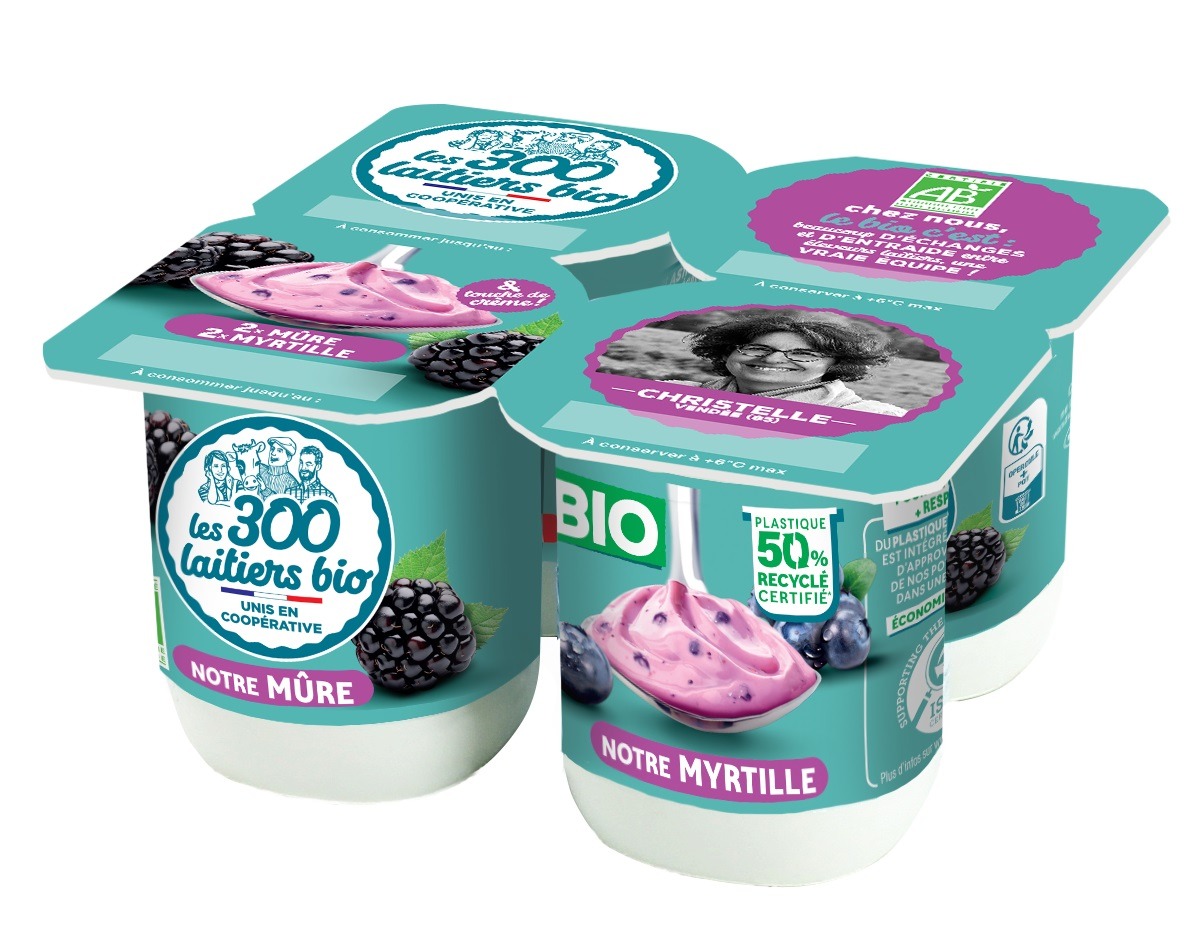Intended for the yoghurt cups of the French brand Les 300 Laitiers Bio, the material has 55% of recycled styrene monomer feedstock with virgin, fossil-based content

Trinseo has collaborated with CEDAP to deliver recycled polystyrene for the yogurt cups of the French brand Les 300 Laitiers Bio. (Credit: Trinseo)
Speciality materials solution provider Trinseo has collaborated with CEDAP to deliver food contact compliant recycled polystyrene (rPS) for the yoghurt cups of the French brand Les 300 Laitiers Bio.
The yoghurt company is a holding of the European agricultural cooperative Eurial Ultra-Frais.
The material used for the application is Trinseo’s STYRON CO2RE CR55 Polystyrene Resin, which blends 55% of recycled styrene monomer feedstock with virgin, fossil-based content.
It yields 50% rPS after manufacture and refinement and is used in the yoghurt pot application.
Trinseo stated that depolymerisation technology is used in the recycling process and enables the polystyrene (PS) waste to convert to its monomer, which is then mixed with virgin material in manufacturing without any difference.
As a result, STYRON CO2RE CR55 Polystyrene Resins may be utilised in high-end, demanding applications such as consumer electronics, packaging, home furnishings, and even applications involving direct contact with food.
The Trinseo rPS is used by CEDAP to create a PS sheet roll, which is then delivered to Eurial Ultra-Frais for yoghurt pot thermoforming, filling, and sealing before being delivered to the store as the finished Les 300 Laitiers BIO product.
Trinseo sustainability business development leader Julien Renvoise said: “Trinseo is seeing increased demand for rPS, not only in sensitive food applications, as with CEDAP and Eurial Ultra-Frais, but in applications across industry sectors.
“Due to the simple chemistry of PS, polystyrene waste can be processed in a number of ways, allowing customers not only to meet sustainability goals but to achieve material performance and cost requirements.”
All three firms are ISCC+ mass balance certified in terms of the traceability of sustainable content.
With a shared dedication to sustainability, Eurial Ultra-Frais, CEDAP, and Trinseo understand the value of protecting fossil fuels, lowering carbon emissions, and implementing a circular economic model.
